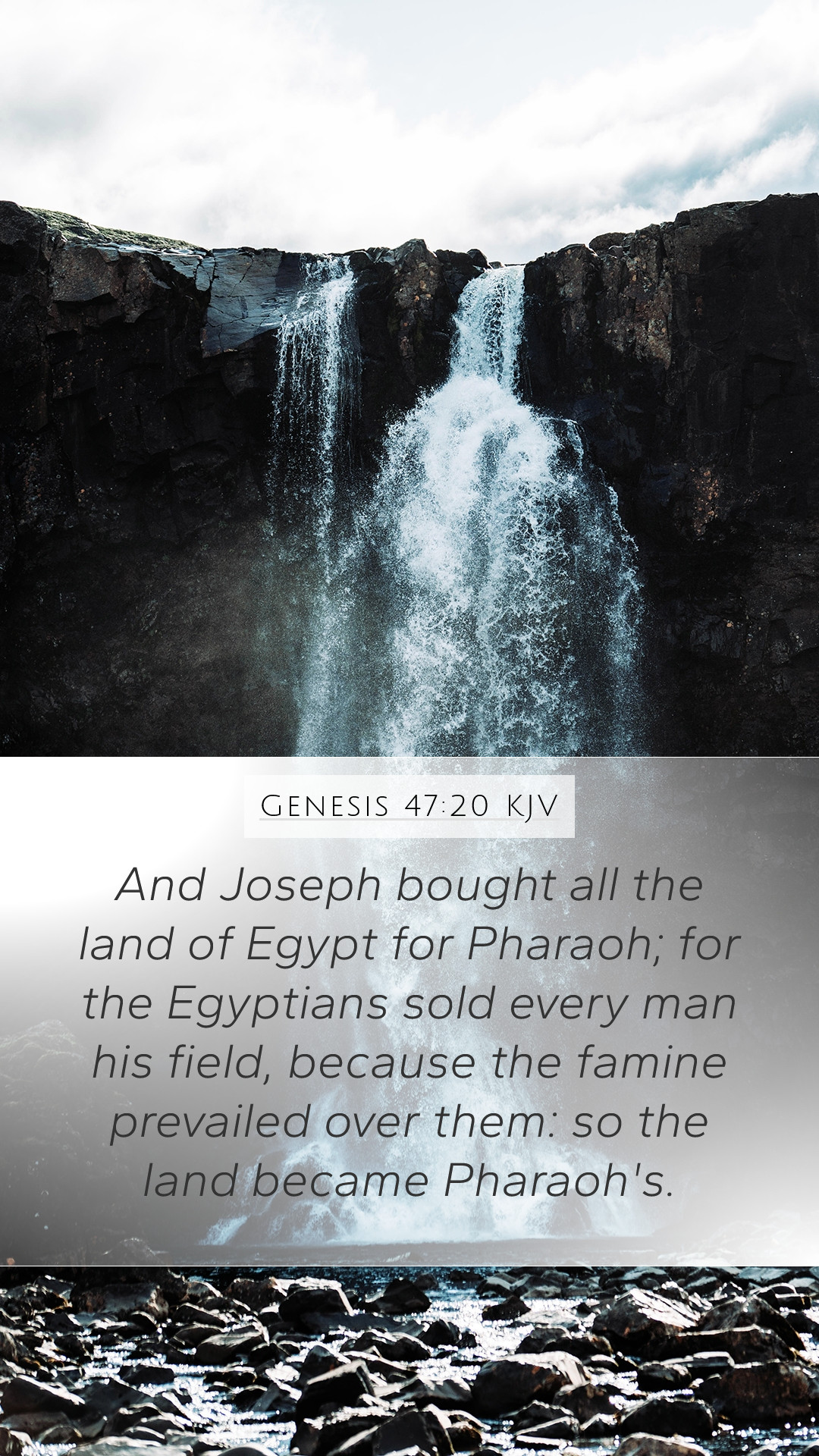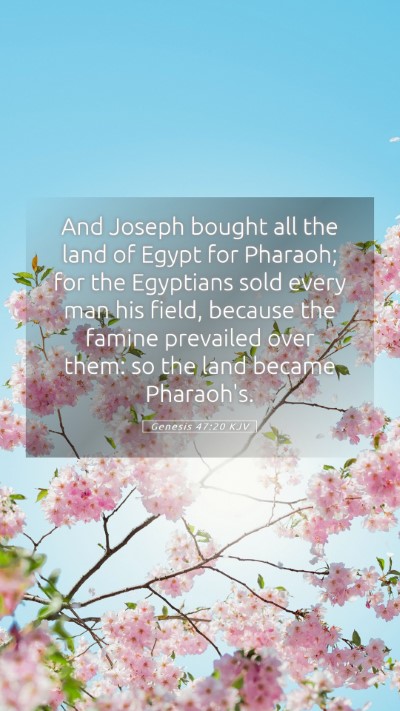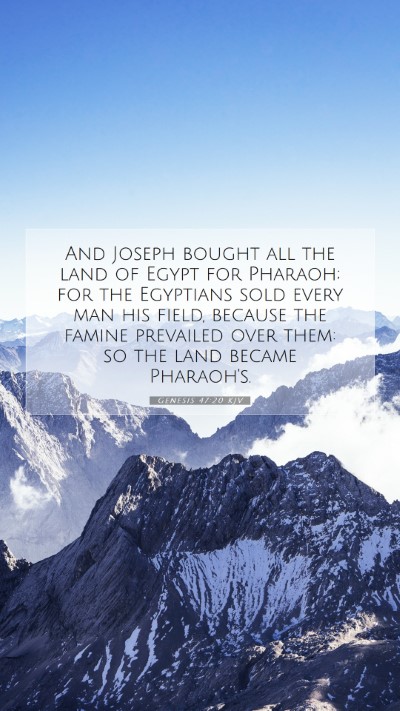Understanding Genesis 47:20: A Comprehensive Exegesis
Genesis 47:20 states, “And Joseph bought all the land of Egypt for Pharaoh; for the Egyptians sold every man his field, because the famine prevailed over them: so the land became Pharaoh's.” This verse serves as a pivotal moment in the narrative of Joseph’s administration in Egypt during a time of great famine.
Contextual Overview
The backdrop of this verse involves a severe famine affecting the land, which leads to desperate measures by the Egyptian populace. Joseph, as the appointed overseer of Egypt's agricultural reserves, is instrumental in managing the crisis. The actions described in this verse reflect both Joseph’s wisdom and his loyalty to Pharaoh.
Insights from Commentaries
-
Matthew Henry's Commentary: Henry emphasizes the magnitude of Joseph's role in the Egyptian economy, noting that his acquisition of all land signifies a consolidation of power under Pharaoh. The act of buying the land showcases Joseph's administrative skills and foresight in ensuring food security for the nation, albeit at the expense of individual ownership.
-
Albert Barnes' Notes: Barnes highlights the desperation of the Egyptians, detailing how the famine forced them to relinquish their land. He notes that this transaction not only preserved life during the famine but also systematically shifted the economic power to Pharaoh, setting a precedent for future governance in Egypt. Barnes points out the ethical implications of this power dynamic.
-
Adam Clarke's Commentary: Clarke gives insight into the socio-economic conditions of the time, suggesting that Joseph's actions were both pragmatic and strategic. He notes that while Joseph's actions benefited Pharaoh, they also reflect the difficult choices faced by people in times of crisis. Clarke further discusses the long-term impacts of this centralization of land on Egyptian society.
Thematic Analysis
This passage illustrates several themes essential for deeper biblical understanding:
- Divine Providence: The famine, although a dire circumstance, aligns with God’s plan for the Israelites. Joseph’s rise to power is a testament to the overarching theme of divine intervention and providence.
- Human Desperation: The actions of the Egyptians underscore the lengths individuals will go to ensure survival, highlighting a common human experience during times of crisis.
- Power Dynamics: The consolidation of land under Pharaoh reflects the intricate relationship between leadership and economic control, raising questions about governance and social responsibility.
Application in Bible Study
For those engaging in bible study groups, this verse prompts discussions regarding:
- The ethical considerations of Joseph’s actions
- The role of leadership in crisis situations
- How divine providence operates in difficult times
Using this verse as a case study enhances our bible study insights into the realities of faith, government, and human experience.
Related Scripture References
- Genesis 41:30-31 – The prophecy of famine
- Genesis 45:5-7 – Joseph's revelation to his brothers
- Exodus 1:8-10 – Arrival of a new Pharaoh
Conclusion
The verse Genesis 47:20 encapsulates significant lessons about leadership, survival, and the complexities of human existence in crisis. By combining insights from various commentaries, we gain a comprehensive understanding that speaks to both the historical context and modern applications of Scripture. Whether you are partaking in online bible study or looking for bible study tools, this analysis provides a framework for deeper exploration into the text.


